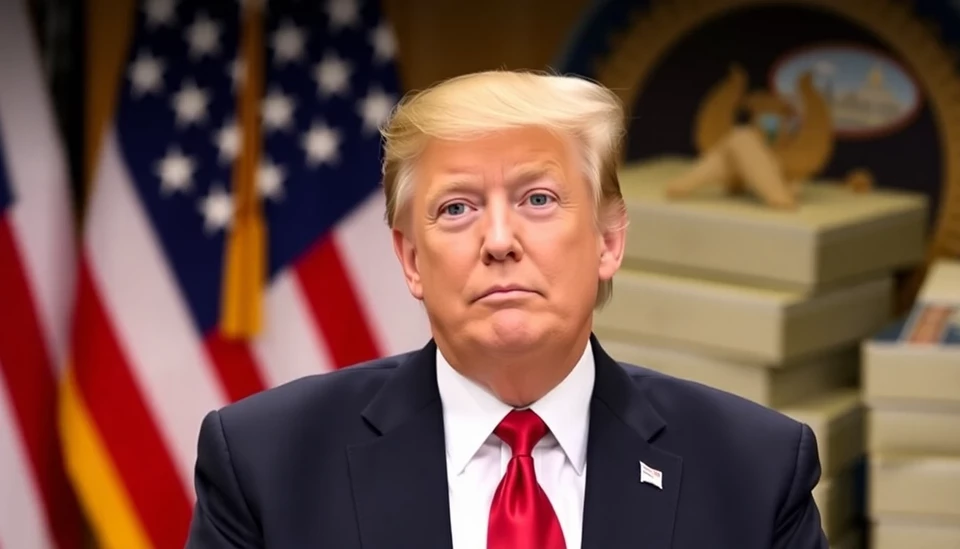
In a bold move signaling a shift in U.S. trade policy, former President Donald Trump announced his plans to sign an executive order aimed at establishing reciprocal tariffs on imports. This announcement comes as part of his ongoing strategy to prioritize American industries and counter perceived unfair trade practices from foreign nations.
During a recent press conference, Trump articulated his frustrations with countries that impose tariffs on American goods without reciprocating with similar measures on their imports. He described the new executive order as a necessary course of action to level the playing field for U.S. businesses and protect American jobs. "We cannot allow other countries to take advantage of us anymore," he declared, emphasizing the need for the U.S. to stand firm against unfair trade practices.
The proposed changes under the executive order would allow the U.S. government to impose tariffs on foreign goods in direct response to tariffs imposed by other countries. According to Trump, this measure will deter trading partners from engaging in practices that undermine U.S. economic interests. It is anticipated that the order will impact industries ranging from manufacturing to agricultural exports, as the administration seeks to shield American products from unfair competition.
Trade experts have been closely monitoring these developments, with opinions divided on the potential implications for the U.S. economy. Supporters of the executive order believe it could strengthen domestic industries by fostering a more equitable trade system, while critics warn it could spark a new wave of trade wars. They argue that unilateral tariff increases may lead to retaliation from other countries, which could ultimately harm American consumers and markets.
Since leaving office, Trump has remained a significant figure in American politics, actively shaping discussions around trade and economic policy. His persistent advocacy for his administration's previous tariffs on steel and aluminum has met mixed responses, but it remains a core aspect of his economic platform. Observers predict that the forthcoming executive order will further energize his base while igniting controversy in the broader national discourse on trade.
As the details of the executive order continue to unfold, trade analysts will be scrutinizing its effects closely. The administration is expected to outline concrete measures and targeted industries affected by the new policy in the coming weeks. This initiative could potentially redefine America's approach to global trade and influence the dynamics of international commerce.
The implications of the reciprocal tariff system extend beyond borders, as it may also affect diplomatic relationships with trading partners. As countries reassess their strategies in response to U.S. tariffs, the balance of global trade may shift, leading to unforeseen consequences that could ripple through the global economy.
As Trump's executive order materializes, the nation watches closely, eager to understand how this development will influence the landscape of American trade and industry in the months and years to come.
For those looking to stay updated on this evolving story, keep an eye on the trade negotiations and be prepared for both opportunities and challenges that lie ahead.
#Trump #ReciprocalTariffs #TradePolicy #Economy #USTrade #ExecutiveOrder #GlobalTrade #Manufacturing #Agriculture #EconomicPolicy
Author: Rachel Greene




